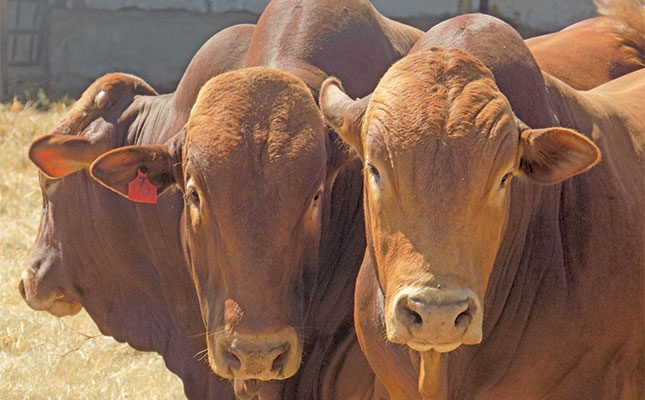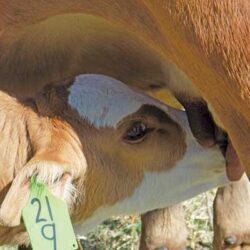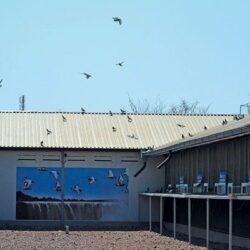Facial recognition technology is set to become a game changer in the ongoing fight against livestock theft in South Africa. This technology is no longer limited to humans, but is also capable of identifying individual heads of cattle via their muzzle patterns with more than 99% accuracy.
READ Practical guidelines to prevent stock theft
This cutting-edge approach positions facial recognition expertise at the forefront of agricultural technology, offering unprecedented accuracy in livestock management.
The platform’s artificial intelligence-driven facial recognition system is a significant leap forward in enhancing traceability and reducing risks for farmers and ranchers.
Local pioneer
Agri Facial Recognition recently registered as the first company to employ this technology in South Africa. This follows a three-year search by Naas Botes, the company’s owner and founder, for a facial recognition technology service provider that would make the systems available locally.
He eventually succeeded in acquiring the necessary technology from Z Ware, a software company in Australia.
According to Botes, the technology streamlines management and provides a reliable, non-invasive platform for cattle identification.
Agri Facial Recognition is based on advanced facial identification technology, leveraging individual facial features of cattle for identification and verification of ownership. Locally, this technology is instrumental in accurately identifying individual heads of cattle.
The primary objective is to swiftly identify cattle and their owners. Just like every human being has a unique set of fingerprints, every individual head of cattle has a unique facial structure and, more importantly, a unique muzzle pattern.
“The technology works by taking a photo of an animal’s face on a smartphone or tablet and uploading it to Agri Facial Recognition’s software platform. A profile of the cow or bull is then produced and shared with the animal’s owner. This cutting-edge biometric monitoring system can be used for different scales of livestock production, including game. The technology’s applicability depends more on the specific needs and resources of the farmer rather than the scale of their operation,” explains Botes.
Swift, secure and efficient
“Ensuring the data security of our clients is a top priority for us. We implemented robust measures such as encryption, access controls, regular security audits, and compliance with relevant data-protection regulations to safeguard their information against unauthorised access or misuse,” he adds.
According to Dr Phillip Zada, Z Ware founder and managing director, the algorithm they developed “has an accuracy of over 99% based on 500 cattle images that Z Ware tested in Australia”.
The technology is highly efficient in proving ownership of stolen animals in cases of unbranded cattle or in those where brand marks or tattoos have been tampered with. The same technology is also used in Europe, India and the US, among other countries.
The software is still in the development and testing stages for sheep, goats and pigs, continues Zada. This technology will be made available by the end of 2024 or early 2025. At the moment, the database only provides for cattle and buffalo in South Africa.
“Buffalo represent a huge capital investment for game breeders. This species and cattle are both bovines with the same attributes as far as muzzle patterns are concerned. Therefore, the technology currently available is ideally suited to register and keep track of these animals.
“For instance, it could’ve been invaluable in a case a few years ago when buffalo from one of the best bloodlines in the country were stolen. The animals were retrieved, but because ownership could not be proven, the original owner lost the case against the suspected thieves,” explains Botes.
Disease prediction and management
As a matter of interest, Botes points out, a collaborative study conducted by animal agtech company MyAnIML and the US Department of Agriculture successfully corroborated in expanding facial recognition technology’s predictive ability to proactively manage disease outbreaks in cattle.
In addition, the US magazine Drovers reported earlier this year that muzzle patterns can act as a health predictor of diseases like foot rot and uterine infections. These conditions cause subtle changes in the bumps and ridges on a cow’s muzzle, a precursor of possible poor health.
Success and expansion
Although Agri Facial Recognition was only launched in December 2023, it has already had its first success story in a stock theft case in Schweizer-Reneke, North West. Twenty-two Charolais cattle were recovered, identified, and their ownership successfully proven with the technology.
“When cattle are recovered and their brand marks have been tampered with or tattoos cut out of their ears, the ownership needs to be confirmed by means of DNA testing, which takes time and money. However, the facial recognition technology made it possible to determine identification and ownership of the Charolais cattle in a matter of minutes,” says Botes.
The company has also teamed up with Free State Agriculture (FSA) to strengthen the organisation’s stock theft safety and security structures.
As soon as a theft is reported, Botes and his team send a ‘be on the lookout’ message to all the activation groups in the relevant areas. These include the South African Police Service, FSA investigators, National Crime Assist, Agri Facial Recognition clients, local farmers, auctioneers and abattoirs.
An added bonus is that the technology eliminates the need for invasive and damaging methods of animal identification, such as branding and tattooing. It also saves stolen animals from having to endure the often cruel practice of the removal or corruption of brand marks and tattoos by livestock thieves.
Facial recognition technology allows farmers to protect their cattle, increase farm security and contribute to the welfare of their livestock.
Phone Naas Botes on 083 273 5350 or visit agrifacialsa.co.za.




